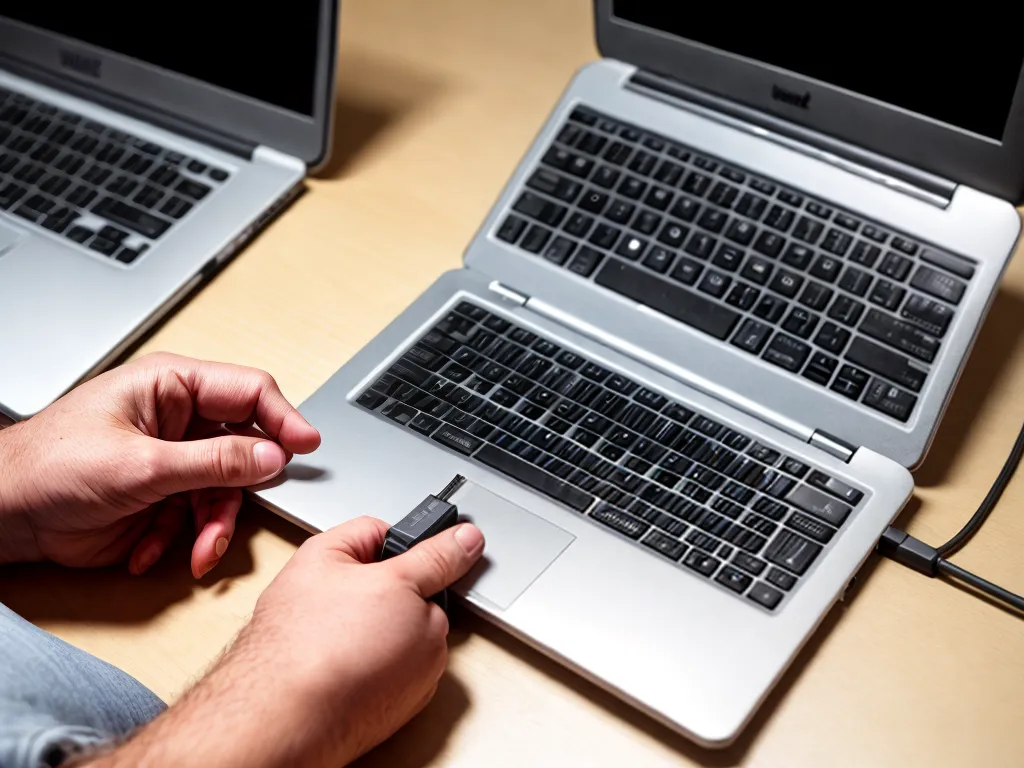
USB ports are essential for connecting peripherals and devices to your laptop. However, like any other component, USB ports can sometimes malfunction or fail. Here is a guide on diagnosing common problems with laptop USB ports and steps you can take to try and fix them.
Symptoms of USB Port Failure
There are several signs that may indicate an issue with your USB ports:
- Devices not being recognized when plugged into a port
- Intermittent connections – devices connecting and disconnecting randomly
- Slow data transfer speeds compared to normal
- Port physically broken/damaged – loose, bent pins, cracks in housing
These symptoms point to hardware problems with the USB ports themselves. Software issues can also cause USB problems, but those tend to affect all ports simultaneously.
Testing Your USB Ports
To properly diagnose USB port problems, you’ll need to test each individual port.
-
Try plugging different devices like flash drives, keyboards, and mice into each USB port. See if they are recognized properly.
-
For devices that connect, check their data transfer speed by copying files back and forth. Compare to your normal transfer rate.
-
Carefully inspect each USB port for any physical damage like bent/broken pins or cracks in the plastic housing. Use a flashlight for illumination.
-
Try wiggling cables gently while plugged into a suspect port to check if there is any looseness or intermittent connections.
-
For USB-C ports, inspect the port for any dust, lint or debris inside that could obstruct the connectors.
Testing methodically will help you pinpoint exactly which USB port(s) are malfunctioning.
Possible Causes of USB Port Failure
If you’ve confirmed a USB port is not functioning normally, here are some potential causes:
-
Physical damage – Drops, accidents, and abuse can break port connectors or solder joints inside the laptop.
-
Power surge – A surge from a faulty charger or electrical storm can damage USB controller chips.
-
Static electricity – Small static discharges over time can degrade connections.
-
Corrosion – Moisture and oxidation can corrode or short circuit port pins and joints.
-
Component failure – The USB controller chip or related components may have failed.
-
Software issue – Though rare, buggy USB drivers could also be the culprit.
Fixing USB Ports Yourself
Depending on the issue, you may be able to fix USB ports yourself:
-
For loose ports, carefully bend or press pins so connectors grip tightly again.
-
Remove any obstructions or debris with canned air. Be very gentle.
-
Re-solder any broken solder joints using electronics soldering skills.
-
Replace any visibly burned or damaged components on the motherboard if you have component soldering experience.
However, repairing damaged USB ports and motherboard components requires advanced electronics repair skills. One mistake can ruin the motherboard.
When to Seek Professional Repair
If you don’t have the technical expertise to safely repair USB ports, it’s best to seek professional help in these cases:
-
Ports are completely dead without any sign of physical damage
-
Ports degraded slowly over time or after a power surge
-
Repair attempts have failed or caused further damage
-
Laptop is still under warranty or has protection plans
Professional repair specialists have the skills, tools, diagnostic equipment, and parts sourcing capabilities to properly diagnose issues and implement fixes like USB port replacements. This gives the best chance of restoring USB functionality without endangering the laptop.
Preventing Future USB Port Damage
To help avoid USB port failure down the road:
-
Be gentle when plugging/unplugging devices
-
Don’t strain connectors with sudden cable yanks
-
Keep ports clean and prevent moisture buildup
-
Use a grounded surge protector during charging
-
Avoid using loose ports that feel disconnected
With proper care and maintenance, your laptop’s USB ports should enjoy a long and useful life. But if problems eventually occur, use the troubleshooting tips outlined here to determine the cause and solution.












